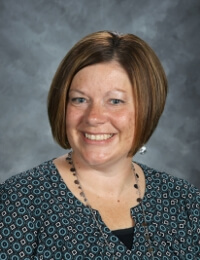Educators face complex challenges

One might argue that being a principal (or an educator in any capacity) during this time is challenging, to say the least.
In the weeks since the school shooting in Parkland, Florida, CCS, along with other schools across America, has grappled with how to respond to the most recent acts of threats and violence in American schools. Despite the amazing amount of work that has been done to implement greater measures of safety in our schools, we have once again been catapulted into an acute need to respond in a way that takes care of all of our students, teachers and staff members.
I began teaching in 1996—one year before Columbine. Nothing in my undergraduate work had ever prepared me for the school safety work that has had to evolve over the past two decades. The work of creating and implementing school safety plans has become just as much a part of the role of educators as the work of planning for instruction, teaching and assessing student learning. There are many preventative measures in place in our school to ensure school safety, as well as plans and practices to respond to safety concerns. This work continues to become more and more complex, yet more routine, as we work with our fellow administrators, district leadership and law enforcement agencies.
Much of what my teacher training did prepare me for, and much of what I have always loved about being an educator, points to the real work that we do: getting to know our students well and forming meaningful connections with them. This is our daily experience, but in recent weeks it has taken on even more importance and intention. We have focused on taking cues from the students—allowing them to express concerns and ask questions, giving them support and maintaining a sense of normalcy. We have listened to our students and honored their voices, including having students organize and lead a very respectful walkout on March 15 while other students participated in discussions or reflection time.
One of the challenges of working with young students is that they have a lot of ideas! However, that is the gift of working with young students as well. They have ideas, and if we listen to them—really listen—and follow their lead, we will be able to provide them with what they need the most at this particular moment.
Meet Stephanie Sumner, CCS Principal
Stephanie Sumner lives in Williston with her husband, Sandi, and their children, Sadie (15) and Jack (11). She grew up in West Haven, Vermont, where she attended a two- (sometimes three-) room school.
Stephanie graduated from UVM in 1996 with a B.S. in elementary education and a B.A. in psychology. She completed a Master of Education degree in K-8 science education at Johnson State College in 2012 and a Certificate of Advanced Graduate Studies in educational leadership at St. Michael’s College in 2017.
She began her teaching career in 1996, teaching 4th grade, and she has taught grades four, five and six, as well as worked as a curriculum consultant and math coordinator.

